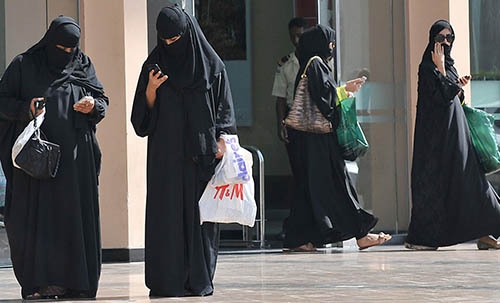Saudi women ‘banned’ from Starbucks after gender segregation wall collapsed
Women were barred from entering a Starbucks outlet in Saudi Arabia after a ‘gender barrier’ wall collapsed, it has been claimed.
According to a report in The Independent, a sign posted on the window of a Riyadh store of the coffee chain, in Arabic and English, reportedly read: “Please no entry for ladies only. Send your driver to order. Thank you.”
One woman who claimed that she was refused service at the café reportedly wrote on Twitter: “Starbucks store in Riyadh refused to serve me just because I’m a woman and asked me to send a man instead.”
However, Starbucks denied that the store had a ban on women.
According to the Arabic language daily newspaper Al Weaam, the country’s religious police – the Committee for the Promotion of Virtue and Prevention of Vice – ordered the coffee shop’s management to ban women from the establishment after it found that a ‘segregation wall’ inside the store had given way during a routine inspection around a market in the capital city.
According to Al Weaam, the store’s management told the police that the wall had regularly collapsed because of customer stampedes.
A spokeswoman for Starbucks told The Independent that the store was currently under renovation to construct a wall to accommodate single people and families, in accordance with local customs, and is due to be completed within the next two weeks.
In a statement, the company said: “Starbucks in Saudi Arabia adheres to the local customs by providing separate entrances for families as well as single people.
“All our stores provide equal amenities, service, menu and seating to men, women and families.
“We are working as quickly as possible as we refurbish our Jarir store, so that we may again welcome all customers in accordance with local customs.”
In December, women in Saudi Arabia voted in municipal elections for the first time in the country’s history. Nearly 1,000 women also stood as candidates in the elections.
Photo: The Independent
Related Posts

